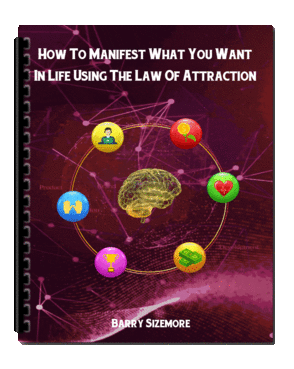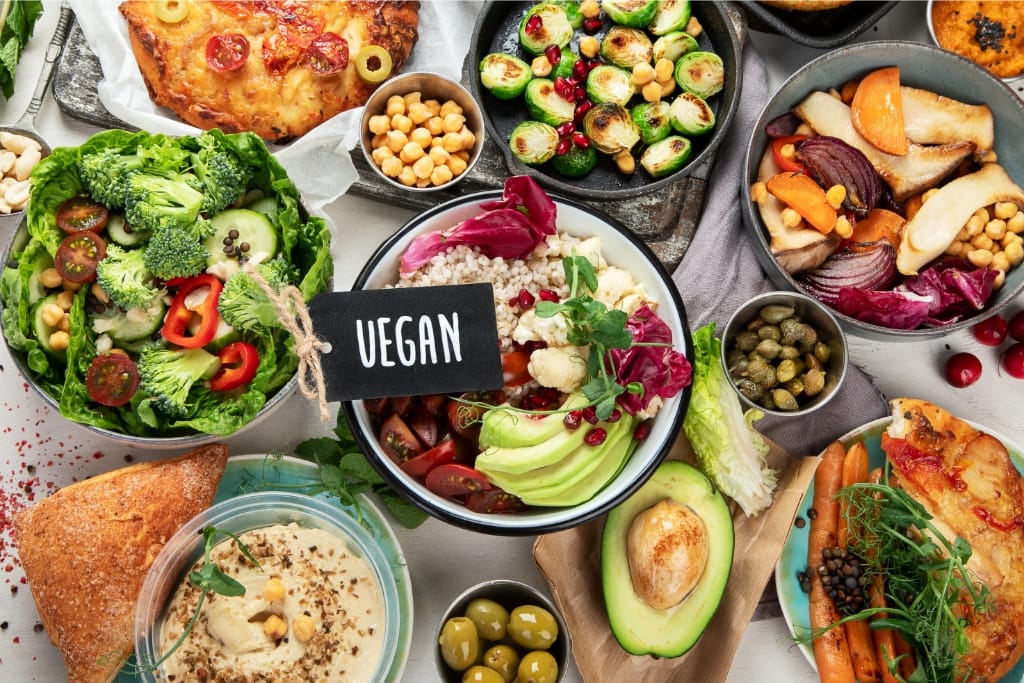Adopting a vegan lifestyle is an empowering choice that can positively impact your health, the environment, and the well-being of animals.
Whether you're motivated by ethical concerns, sustainability, or personal wellness, making this transition is a meaningful step toward aligning your values with your daily habits.
While change can bring challenges, the rewards of a plant-based lifestyle are immeasurable.
With the right strategies and mindset, you can set yourself up for success and fully enjoy this fulfilling way of living.
Learn how to make your vegan transition seamless and practical with tips designed to inspire confidence and clarity.
1)) Start Gradually
Transitioning to a vegan lifestyle doesn't mean you have to overhaul everything overnight.
Start by incorporating more plant-based meals into your routine, such as a hearty vegetable stir-fry or a creamy coconut milk curry.
Gradually reduce your consumption of animal products, perhaps beginning with one or two meatless days per week.
This paced approach allows your taste buds, habits, and cooking skills to adjust naturally without overwhelming yourself.
Over time, these small, consistent steps will help you build confidence and establish sustainable habits that align with your new lifestyle.
2)) Research Nutritional Needs
Understanding your nutritional needs is a crucial step when transitioning to a vegan lifestyle.
A plant-based diet can provide all the essential nutrients your body requires, but it’s important to be mindful of certain key areas such as protein, vitamin B12, iron, and omega-3 fatty acids.
Incorporate nutrient-dense foods like lentils, tofu, quinoa, leafy greens, flaxseeds, and fortified plant-based products into your meals to ensure a balanced diet.
Consulting with a nutritionist or using reputable resources can help you create a plan tailored to your specific needs.
With proper awareness and preparation, you can thrive on a vegan diet while maintaining optimal health and energy levels.
3)) Learn To Read Labels
Reading labels is an essential skill for anyone transitioning to a vegan lifestyle.
Many products contain hidden animal-derived ingredients that may not be immediately obvious, such as gelatin, casein, or whey.
Familiarize yourself with common non-vegan additives and learn to recognize certifications like "Vegan" or "Plant-Based" on packaging.
Pay attention to ingredient lists and allergen statements, as these can offer additional clarity about whether a product aligns with your goals.
Developing this habit ensures that your shopping choices reflect your commitment to a fully vegan diet while empowering you to make informed decisions with ease.
4)) Stock Plant-Based Staples
Stocking your kitchen with plant-based staples is a key step toward making your vegan transition seamless.
Focus on versatile ingredients like beans, lentils, whole grains, nuts, seeds, and an array of fresh or frozen vegetables to build a strong foundation for your meals.
Pantry essentials such as canned tomatoes, coconut milk, nutritional yeast, and a variety of spices can add depth and flavor to plant-based dishes.
With these staples on hand, you’ll find it easier to prepare nourishing, satisfying meals without feeling restricted or unprepared.
Building a well-stocked kitchen sets the stage for consistent and enjoyable vegan cooking.
5)) Experiment With Recipes
Experimenting with recipes allows you to discover the incredible variety and creativity within a vegan diet.
Try dishes from diverse cuisines, such as spicy chickpea curries, Mediterranean-style roasted vegetable bowls, or decadent plant-based desserts like chocolate avocado mousse.
Exploring new ingredients—like jackfruit, nutritional yeast, or tempeh—can inspire you to create unique meals that excite your palate.
Take the time to adjust flavors and techniques to suit your personal preferences, and don’t be afraid to try something new.
Developing a repertoire of delicious recipes adds excitement to your vegan lifestyle and ensures that your meals remain enjoyable and satisfying.
6)) Find Vegan Alternatives
Finding vegan alternatives is an exciting way to make your transition both enjoyable and sustainable.
Today, there are countless plant-based substitutes for traditional animal products, including dairy-free cheeses, plant-based kinds of milk, faux meats, and even egg replacements made from chia seeds or aquafaba.
These alternatives allow you to recreate familiar dishes, like creamy pasta, burgers, or baked goods, without sacrificing flavor or texture.
Exploring these options not only helps ease the transition but also introduces you to a world of innovative and delicious new products.
Incorporating these alternatives into your meals enables you to continue enjoying your favorite foods while staying true to your vegan lifestyle.
7)) Plan Balanced Meals
Planning balanced meals is fundamental to ensuring that your vegan diet meets all your nutritional needs.
A well-rounded plate should include a variety of food groups, such as whole grains, protein sources like legumes or tofu, healthy fats from avocado or nuts, and an abundance of colorful fruits and vegetables.
Combine ingredients that complement each other nutritionally, such as pairing foods rich in vitamin C with iron sources to enhance absorption.
Preparing your meals in advance or having a weekly meal plan can save time and reduce stress during busy moments.
Prioritizing diverse and nutrient-dense meals supports your health while keeping your vegan lifestyle vibrant and fulfilling.
8)) Connect With Communities
Connecting with communities can provide valuable support and inspiration throughout your vegan journey.
Joining local or online vegan groups allows you to share experiences, exchange tips, and learn from others who have embraced a plant-based lifestyle.
These communities often host events such as potlucks, cooking classes, or vegan festivals, where you can discover new recipes and products while fostering connections with like-minded individuals.
Engaging with others who share your values creates a sense of belonging and encouragement, helping you stay motivated and informed.
Building relationships within these communities enhances your overall experience and keeps you inspired in your vegan lifestyle.
9)) Be Patient With Yourself
Transitioning to a fully vegan lifestyle is a process that requires time, effort, and self-compassion.
It’s natural to encounter challenges or make mistakes along the way, whether it’s adjusting to new flavors, breaking old habits, or navigating social situations.
The key is to acknowledge your progress and focus on learning and growing with each experience.
Rather than aiming for perfection, celebrate the small victories and recognize that change is a gradual journey.
Remaining patient and kind to yourself fosters resilience and keeps you committed to your vegan goals.
10)) Stay Educated
Staying educated is essential for maintaining a successful and informed vegan lifestyle.
Continuously learning about nutrition, sustainable practices, and ethical considerations empowers you to make well-rounded decisions that align with your values.
Researching reputable sources, reading scientific studies, or following trusted vegan experts can provide clarity and help dispel common misconceptions about plant-based living.
Staying up to date with new products, recipes, and innovations in the vegan world keeps your routine fresh and exciting.
Expanding your knowledge ensures you remain confident and well-prepared in your vegan choices while inspiring others along the way.
Conclusion
Adopting a vegan lifestyle is not only a personal journey but also a meaningful commitment to living in harmony with your values.
By exploring exciting alternatives, planning balanced meals, connecting with supportive communities, and remaining patient with yourself, you create a sustainable foundation for a long-term plant-based lifestyle.
Staying educated empowers you to make informed choices while continuously discovering new and enriching ways to thrive.
This lifestyle goes beyond the food on your plate—it reflects a compassionate and mindful approach to every aspect of life.
Every step you take, no matter how small, contributes to a healthier you and a more sustainable world, inspiring others along the way to join this impactful movement.
Download Our Free E-book!







